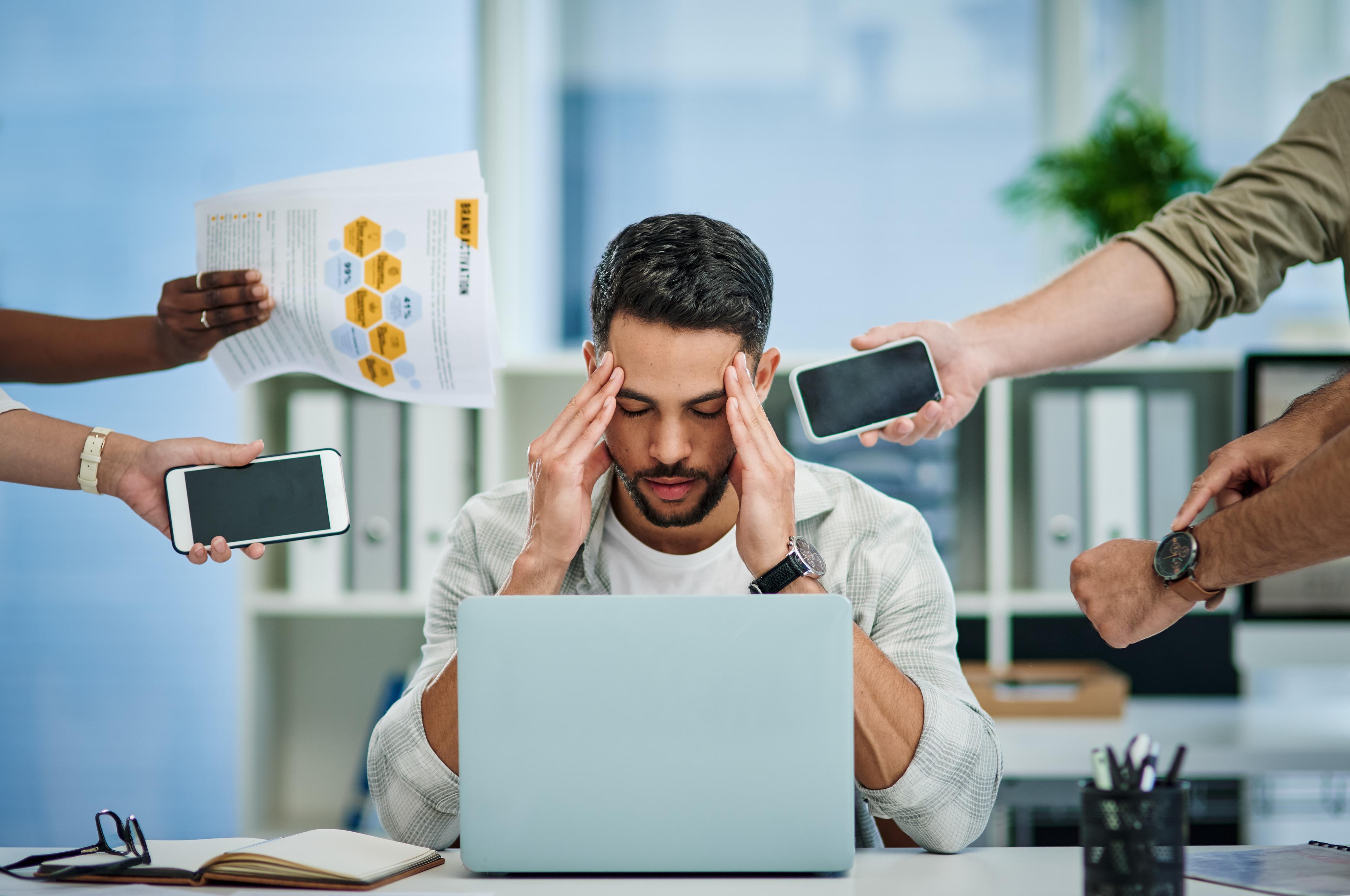Building healthier, stronger futures: our new Health & Wellbeing Plan for employees
By BHSF | March 4th, 2024

Anxiety is a common mental health issue that affects many people in the UK, and the workplace is no exception. With the high-pressure environment, deadlines, and long working hours, it is easy to see how anxiety can become an invisible struggle for many employees. However, it is essential to understand that it is a treatable condition, and there are ways to overcome it.
A recent report by the Health and Safety Executive (HSE) found that a staggering 1.8 million workers in the UK reported work-related ill health in 2022/23¹. Nearly half of these cases were linked to stress, depression, or anxiety, highlighting the growing concern of workplace anxiety.
This isn't just a personal issue, it also has a significant impact on the economy. The estimated annual cost of workplace injury and new cases of work-related ill health is a staggering £20.7 billion, representing a £1.9 billion increase compared to just a few years ago.
These statistics highlight the need for employers to take this condition seriously and create a supportive environment for their employees.
Employees who suffer from anxiety often feel isolated and misunderstood. This is because symptoms can manifest in many ways, including physical, emotional, and cognitive symptoms.
While the feeling of unease is a common symptom of anxiety, it can manifest in a multitude of ways. Physically, you might experience sweating, trembling, nausea, or a rapid heartbeat. Emotionally, you might feel overwhelmed, tense, or fearful. Cognitively, your mind might race with intrusive thoughts, making it difficult to concentrate, or even causing a sense of impending doom.
It's important to remember that anxiety isn't a single entity. There are various types of disorders, including generalised anxiety disorder (GAD), social anxiety disorder, panic disorder, and specific phobias. Each has its own specific triggers and symptoms, and accurate identification is crucial for effective treatment.
If you’re struggling with anxiety in the workplace, seeking help is essential. Employers can provide support through employee assistance programmes (EAPs), which offer counselling and other support services.
At BHSF, we offer a range of therapies and counselling services to help people struggling with anxiety. Our team of counsellors provide evidence-based treatments such as cognitive-behavioural therapy (CBT), Eye Movement Desensitisation and Reprocessing (EMDR), and training courses. Mental health support training courses help individuals identify their triggers, develop coping mechanisms, and learn how to manage their symptoms effectively. Our services are tailored to meet the unique needs of each business, ensuring that their employees receive the right support at the right time.
One of the most effective ways of managing anxiety is through early intervention. This means that employers need to create a safe and supportive environment where employees can feel comfortable discussing their mental health. Last year, The Workforce Institute at UKG found that managers have just as much of an impact on people’s mental health as their spouse (both 69%) and even more of an impact than their doctor (51%) or therapist (41%)². Highlighting the need for line managers to be trained on people skills.
Moreover, managers with effective people management skills are likely to build trust-based working relationships. This will encourage people to disclose if they are under excessive pressure or dealing with anxiety, for example.
In conclusion, anxiety is a prevalent mental health condition that can affect people’s ability to work and live their lives. It’s important to seek help if you’re struggling in the workplace, as there are various therapies and counselling approaches available to help you manage your symptoms.
Sources:
¹ Health and Safety Executive, “HSE publishes annual work-related ill health and injury statistics for 2022/23,” https://press.hse.gov.uk/2023/11/22/hse-publishes-annual-work-related-ill-health-and-injury-statistics-for-2022-23/
² UKG, “Mental Health at Work: Managers and Money,” https://www.ukg.com/resources/article/mental-health-work-managers-and-money

Discover how early intervention and business health plans hel...Discover how early intervention and business health plans help reduce absenteeism, improve employee...
Read moreDiscover how workplace culture, relationships, and wellbeing ...Discover how workplace culture, relationships, and wellbeing programmes shape employee social wellb...
Read moreMost UK employees work during holidays. Explore the impact on...Most UK employees work during holidays. Explore the impact on mental health and why the UK should c...
Read moreExplore what a business health plan is, how it supports emplo...Explore what a business health plan is, how it supports employee wellbeing, and what to look for in...
Read more